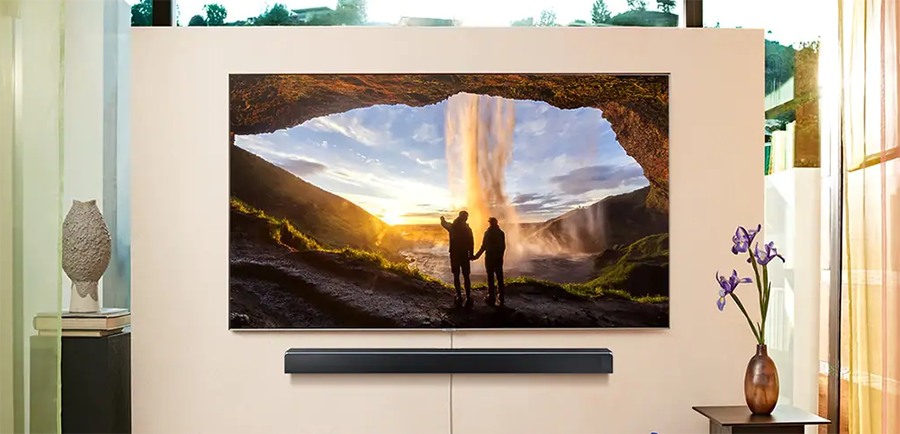How do you troubleshoot sound and noise issues on your Samsung TV?
Even if the picture on your TV is stunning, you won't enjoy your favorite show or movie to the fullest extent without good sound. Fortunately, even though sound dropout might be annoying, your screen is rarely to blame.

When the TV has difficulties with sound, these steps may help resolve the problem.
Check the volume control of your TV, and then check the volume control of the external device (cable box or satellite box, DVD, Blu-ray, etc.) connected to your TV.
Check the cable connection between an external device and the TV, and then try cable connection again.
Check the Sound Output setting. If it is set to TV Speaker, check the volume setting.
• > Menu > Settings > All Settings > Sound > Sound Output.
If you are using an external device, check the device’s audio output option. For example, you may need to change your cable box’s audio option to HDMI if the box connected to your TV is using an HDMI cable.
To listen to computer sound, connect an external speaker to the computer’s audio output connector. If your TV has a headphone jack, make sure there is nothing plugged into it. Reboot the connected device by disconnecting and then reconnecting the device’s power cord.
With a set-top box or cable box, check the cable connection and reboot the external device. When the symptom persists, contact your service provider.
Change to an appropriate sound mode.
>Menu >
Settings > All Settings >Sound > Sound Mode.
When Intelligent Mode and Adaptive Sound Pro are turned on, the sound effects are automatically adjusted to the surroundings.
>Menu >
Settings > All Settings > General & Privacy > Intelligent Mode Settings > Intelligent Mode
To optimize the sound depending on the surroundings, select Adaptive Sound Pro.
>Menu >
Settings > All Settings > General & Privacy > Intelligent Mode Settings > Adaptive Sound Pro.
Note: This function may not be supported depending on the model.
Run Sound Test.
• > Menu > Settings > Suppor t > Device Care > Self Diagnosis > Sound Test.
Make sure that the audio cable is connected to the correct audio output connector on the external device.
For antenna or cable connections, check the Signal Information. A low signal level may cause sound distortions.
• > Menu > Settings > Support > Device Care > Self Diagnosis > Signal Information
Sound quality may be affected if the wireless router is close to the Bluetooth speaker. Place the Bluetooth speaker as close as possible to the TV without obstacles between them. Do not place the wireless router close to the Bluetooth speaker body.
To minimize interruptions, we recommend a wireless access point that uses a 5 GHz frequency. 5 GHz may not be available, depending on the model.
When the symptom persists, it is recommended to use wired connections such as HDMI (eARC/ARC) and Optical.
Check the cable connection between the TV and the external device.
When connecting an external speaker, such as home theater via HDMI, make sure it is connected to the HDMI (eARC/ ARC) port on the TV.
Make sure that the >Menu >
Settings > All Settings > Connection >External Device Manager > Anynet+ (HDMI-CEC) is active on your TV.
When you connect the Samsung Soundbar to the TV via Bluetooth, the power turns off and on together. It may not be supported depending on the Samsung Soundbar model.
When you connect an audio device that supports HDMI eARC to the HDMI (eARC) port on the TV, the power turns off and on together.
Note: For further assistance or questions, please Contact us.
* This feature is only available on specific models. Please refer to your user manual for more information
Thank you for your feedback!
Please answer all questions.